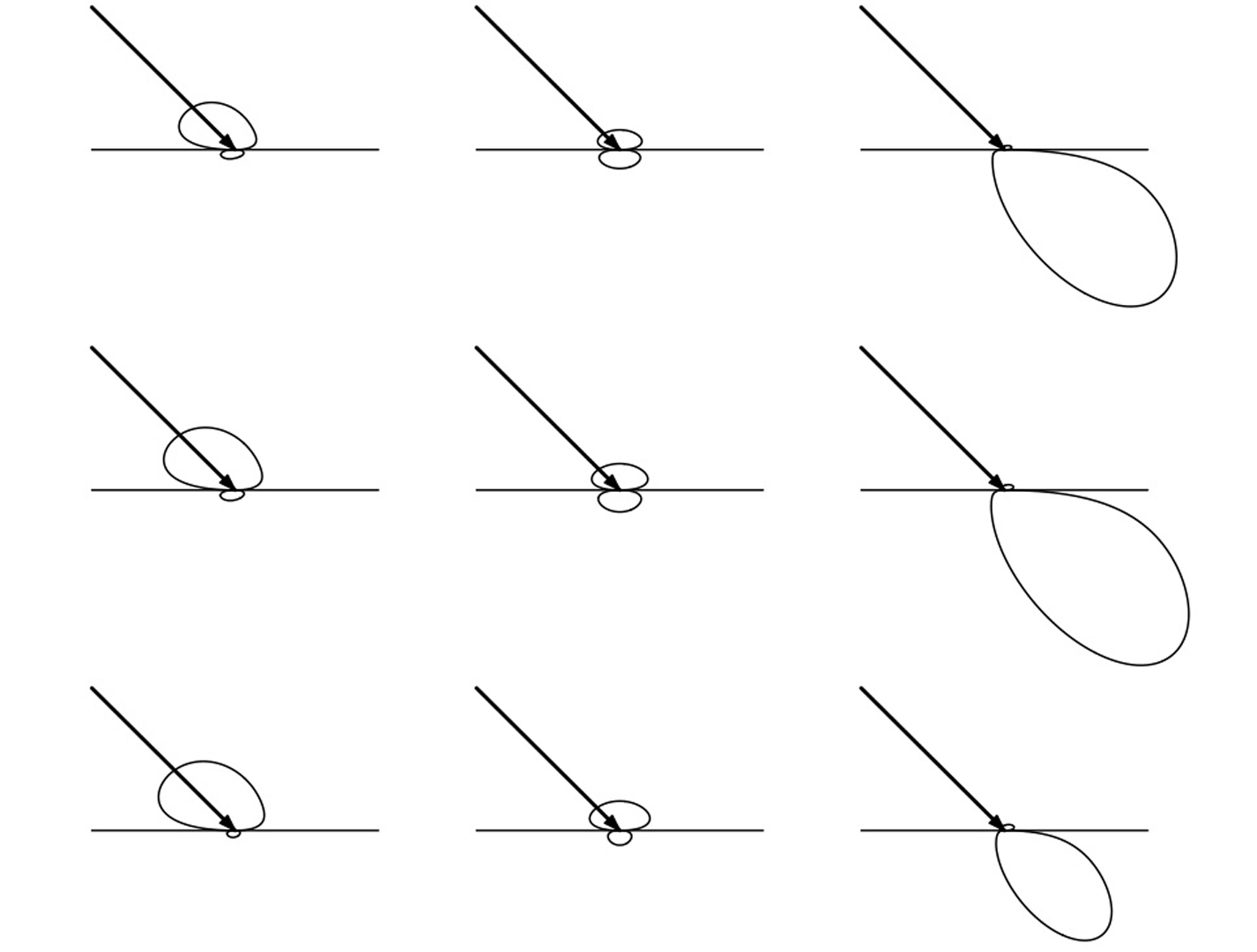“Reflection from layered surfaces due to subsurface scattering” by Hanrahan and Krueger
Conference:
Type(s):
Title:
- Reflection from layered surfaces due to subsurface scattering
Presenter(s)/Author(s):
Abstract:
The reflection of light from most materials consists of two major terms: the specular and the diffuse. Specular reflection may
be modeled from first principles by considering a rough surface
consisting of perfect reflectors, or micro-facets. Diffuse reflection
is generally considered to result from multiple scattering either
from a rough surface or from within a layer near the surface. Accounting for diffuse reflection by Lambert’s Cosine Law, as is
universally done in computer graphics, is not a physical theory
based on first principles.
This paper presents a model for subsurface scattering in layered
surfaces in terms of one-dimensional linear transport theory. We
derive explicit formulas for backscattering and transmission that
can be directly incorporated in most rendering systems, and a general Monte Carlo method that is easily added to a ray tracer. This
model is particularly appropriate for common layered materials
appearing in nature, such as biological tissues (e.g. skin, leaves,
etc.) or inorganic materials (e.g. snow, sand, paint, varnished or
dusty surfaces). As an application of the model, we simulate the
appearance of a face and a cluster of leaves from experimental
data describing their layer properties.
References:
1. BECKMANN, P., AND SPIZZICHINO, A. The scattering of electromagnetic waves from rough surfaces. Pergamon, Oxford, 1963.
2. BLINN, J. F. Light Reflection Functions for Simulation of Clouds and Dusty Surfaces. Computer Graphics 16, 3 (July 1982), 21-29.
3. BLOOMENTHAL, J. Modeling the Mighty Maple. Computer Graphics 19, 3 (July 1985), 305-311.
4. BOUCUEa, P. The Gradation of Light. University of Toronto Press, 1960.
5. CABRAL, B., MAX, N., AND SPRINGMEYER, R. Bidirectional reflection functions from surface bump maps. Computer Graphics 21, 4 (July 1990), 273-281.
6. CAaTSa, L., AND CASHWELL, E. Particle Transport Simulation with the Monte Carlo Method. Energy Research and Development Administration, 1975.
7. CHANDRASEKHAR, S. Radiative Transfer. Dover, New York, 1960.
8. CooK, R. L., AND TORRANCE, K. E. A Reflection Model for Computer Graphics. ACM Transactions on Graphics 1, 1 (1982), 7-24.
9. f’ANTE, R. Relationship between Radiative Transport Theory and Maxwell’s Equations in Dielectric Media. J. Opt. Soc. Am. 71, 4 (April 1981), 460-468.
10. GRAWBOSKI, L. Astrophysics J. 39 (1914), 299.
11. HANRAHAN, P. From Radiometry to the Rendering Equation. SIGGRAPH Course Notes: An Introduction to Radiosity (1992).
12. HE, X. D., TORRANCE, K. E., SILLION, F. X., AND GaSSNBSaC, D. P. A Comprehensive Physical Model for Light Reflection. Computer Graphics 25, 4 (July 1991), 175-186.
13. HENYEY, L. G., AND GREENSTEIN, J. L. Diffuse radiation in the galaxy. Astrophysics J. 93 (1941), 70-83.
14. ISHIMURA, A. Wave Propagation and Scattering in Random Media. Academic Press, New York, 1978.
15. JERLOV, N. G. Optical Oceanography. Elsevier, Amsterdam, 1968.
16. KAJIYA, J. Radiometry and Photometry for Computer Graphics. SIGGRAPH Course Notes: State of the Art in Image Synthesis (1990).
17. KAJIYA, J. Anisotropic Reflection Models. Computer Graphics 19, 3 (July 1985), 15-22.
18. KORTUM, G. Reflectance Spectroscopy. Springer-Verlag, Berlin, 1969.
19. Kauscsa, W. The Application of Transport Theory to the Visualization of 3-D Scalar Fields. Computers in Physics 5 (April 1991), 397-406.
20. MA, Q., ISHIMURA, A., PHU, P., AND KUCA, Y. Transmission, Reflection and Depolarization of an Optical Wave For a Single Leaf. IEEE Transactions on Geoscience and Remote Sensing 28, 5 (September 1990), 865-872.
21. MARCHUK, G., MIKHAILOV, G., NAZARALIEV, M., DARBINJAN, R., KARGIN, B., AND ELEPOV, B. The Monte Carlo Methods in Atmospheric @tics. Springer Verlag, Berlin, 1980.
22. NAKAMAE, E., KANEDA, K., OKAMOTO, T., AND NISHITA, T. A Lighting Model Aiming at Drive Simulators. Computer Graphics 24, 4 (August 1990), 395-404.
23. NICODEMUS, F. E., RICHMOND, J. C., AND HSlA, J. J. Geometrical Considerations and Reflectance. National Bureau of Standards, October 1977.
24. POULIN, P., AND FOURNIER, A. A Model for Anisotropic Reflection. Computer Graphics 24, 4 (August 1990), 273- 282.
25. SEELIGER, R. Munch. Akad. H. KI. Sitzungsber 18 (1888), 201.
26. TORRANCE, K. E., AND SPARROW, E. M. Theory of Off- Specular Reflection From Roughened Surfaces. Journal of the Optical Society of America 57 (September 1967), 1104- 1114.
27. VAN GEMERT, M. F. C., JACQUES, S. L., STEREN- BERG, H. J. C. M., AND STAR, W. M. Skin Optics. IEEE Transactions on Biomedical Engineering 36, 12 (December, 1989), 1146-1154.
28. WESTIN, S. H., ARVO, J. R., AND TORRANCE, K. E. Predicting Reflectance Functions from Complex Surfaces. Computer Graphics 26, 2 (July 1992), 255-264.
29. WOOLLEY, J. T. Reflectance and Transmittance of Light by Leaves. Plant Physiology 47 (1971), 656-662.





